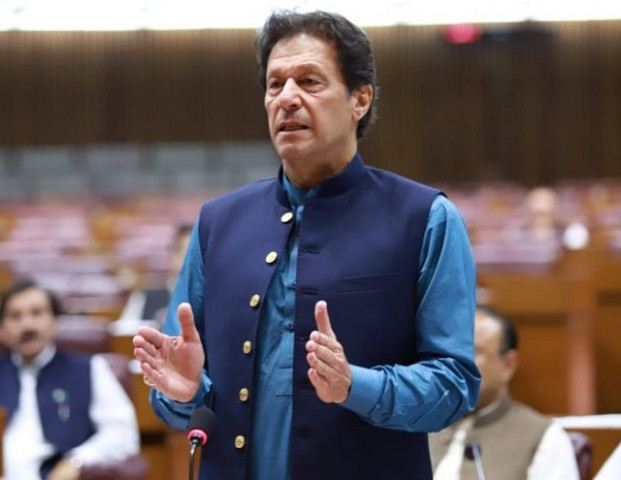PM Office shares concerns on SBP bill
PMO expressed misgivings about exempting the SBP governor from discussing economic matters with the premier

The Prime Minister Office (PMO) had taken great exception to a bill granting autonomy to the State Bank of Pakistan (SBP) to meet certain conditions of the International Monetary Fund (IMF), expressing reservations over the complete ban on government borrowing from the SBP.
The PMO noted that granting absolute autonomy to the state bank meant that the SBP governor would be no longer mandated to meet the premier to liaise on economic matters, sources told The Express Tribune.
Further, it also expressed misgivings about increasing the governor’s term from three years to five years, despite the former’s desire to keep it unchanged.
Sources said that the PM’s Office had also raised several other objections over the SBP amendment Bill, 2021, which envisages complete autonomy for the central bank and places a complete restriction on the government's borrowing from the SBP.
However, except for a few objections, the majority of the concerns were not fully addressed due to limitations imposed under the IMF negotiations, they added.
The premier’s office had disagreed with giving complete autonomy to the SBP and sought the deletion of section 46 B (4) from the Bill.
The section states: “The bank, the members of the decision-making bodies and its staff shall neither request, nor take any instructions from any person or entity, including the government or quasi-government entities. The autonomy of the bank shall be respected at all times and no person or entity shall seek to influence the members of the board, executive committee, monetary policy committee, or the staff of the bank in the performance of their functions”.
Sources said that the PMO wanted to get section 46 B (4) dropped as the PM will not be able to call the governor even to discuss economic matters, in the event the governor invoked privilege under this section. However, the section still remains part of the bill, tabled in the National Assembly.
‘Govt did its best'
“The IMF had a long list of amendments but we persuaded them to drop most amendments. The global money lender insisted on a few amendments but we ensured that no amendment violated the Constitution or compromised Pakistan’s sovereignty,” said Barrister Farogh Naseem, the federal law minister while talking to The Express Tribune.
We ensured that the SBP should have autonomy in keeping with international principles and what is prevalent in other independent nation-states. But the autonomy does not imply that SBP can ignore the federal government's policies and directives, said the minister.
Naseem said that SBP remains accountable to the parliament, adding that the federal government and all officers of the SBP, including its governor, are accountable.
Various segments of society, opposition parties, academia and media have raised similar concerns over absolute autonomy proposed for the central bank without ensuring its accountability.
Objection to ending board
The sources said that the PM’s Office also objected to abolishing the Monetary and Fiscal Policies Coordination Board (MFPCB), which had been set up since 1994 to ensure better coordination of monetary and fiscal policies.
The PM’s Office was of the view that abolishing the board would remove any forum for consultation with the Ministry of Finance and the federal government on monetary and exchange rate policies.
The premier’s office was informed that a liaison has been proposed for a mutual consultative mechanism between the Governor SBP and Minister of Finance in place of the board. But the sources said that this liaison cannot be an alternative to the statutory board.
The PM’s Office was also concerned that due to the abolishment of the MFPCB, the federal government will not have control over the monetary policy.
The only instrument left with the federal government would be taxation on the fiscal side, said the sources.
However, the Finance Ministry was of the view that the function of the monetary policy was already independent of the federal government and was being handled by the Monetary Policy Committee, headed by the SBP governor.



















COMMENTS
Comments are moderated and generally will be posted if they are on-topic and not abusive.
For more information, please see our Comments FAQ